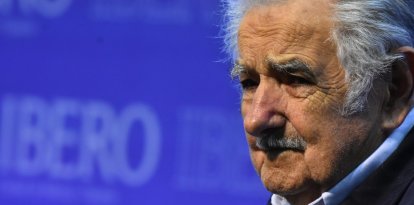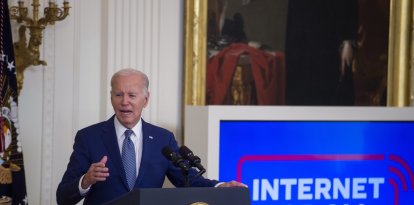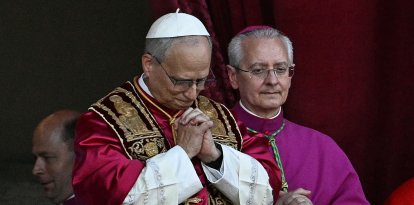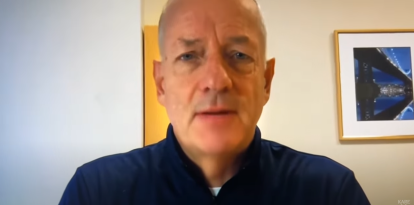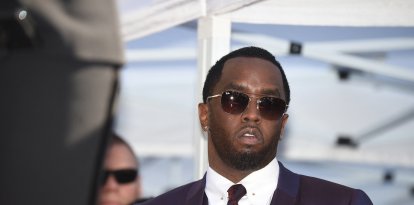Micronations: The dream of having a country of one's own
Some are founded for ideological reasons, others as a result of conflicts with state authorities, although they can also be created for artistic and/or comedic reasons, or to feel like "rulers" of their own countries. However, they all have one thing in common: they do not have international recognition. A look at some of the world's best-known micronations.
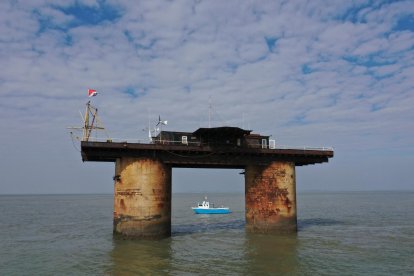
Principality of Sealand
Micronations are entities that consider themselves sovereign states but are not recognized by any country or international bodies. They usually have a territory, although this is not always the case, as they are sometimes imaginary or on the internet.
While some have inhabitants, others have citizens who do not reside in them. However, the vast majority of micronations have an anthem, a flag and their own laws, and some even issue their own money or have teams in various sports.
The reasons why micronations are created are varied: ideology, conflicts with the authorities, artistic and/or comedic reasons, or simply to feel "rulers" of their own countries.
The following is a list of some of the best-known micronations.
Principality of Sealand
It was founded in 1967 by a pirate radio host named Paddy Roy Bates, self-proclaimed "His Royal Highness Prince Roy of Sealand." Its territory consists of a British military platform abandoned during World War II.
Sealand, which lies about 13 miles off the southeastern coast of Great Britain and has about 300 citizens around the world, has its own currency, passports and a national soccer team.
Despite its small size, Sealand was involved in an armed conflict with Britain in 1968, when Prince Michael Bates, son of the micronation's founder and monarch, was brought to trial following an incident during which a British Navy ship was fired upon near Sealand. That same year, the court, based in Chelmsford, Essex, held that it had no jurisdiction over the case because it occurred in British territorial waters, a decision that Bates regarded as a recognition of his sovereignty.
The government also suffered an attempted coup d'état in 1978, when Alexander G. Achenbach, prime minister of Sealand, along with Dutch and German nationals, took Michael Bates hostage. However, the prince's father used an assault helicopter to retake power and held the coup plotters captive. The governments of the Netherlands and Germany requested the British authorities to intervene to free them, but they did not claim any responsibility due to the 1968 court decision. Finally, the Germans sent a diplomat to negotiate with the Sealand leader to free Achenbach. While Roy Bates acceded to the request, he considered that the visit by the German representative constituted a de facto "recognition" by that country of his own.
In 2006, the micronation suffered a severe fire resulting from the explosion of an electricity generator but is still standing and selling noble titles to maintain itself.
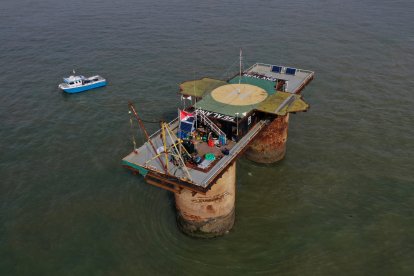
Principality of Sealand
Akhzivland
Akhzivland was founded by the late Eli Avivi, who was born in Iran but emigrated to Israel at the age of 2, where during his youth in the 1960s he settled in a northern fishing village on the shores of the Mediterranean Sea near the border with Lebanon, which had been abandoned after the War of Independence.
Avivi settled there despite having no legal rights to the land. He built his house and was later joined in the project by Rina, who would later become his wife.
The couple came into conflict with the authorities, who wanted to establish a national park there. However, Eli and Rina were opposed to leaving, so they decided to found their own independent country, with its own flag, currency and anthem.
Although his idea of self-proclaiming this independent state took him to court for being considered illegal, the case was settled in his favor and he was able to project, until his death, the ideal of freedom and pacifism that attracted young people from all over the world, including international celebrities such as Sophia Loren and Paul Newman.
Today, the Israeli Ministry of Tourism recognizes the site as a tourist attraction.
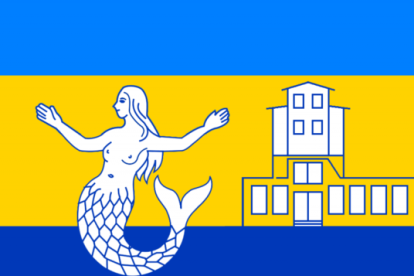
Flag of Akhzivland
Liberland
Liberland is a micronation founded by Czech entrepreneur and libertarian activist Vit Jedlicka, who almost a decade ago settled on a 3 square mile wooded plot of land located between Croatia and Serbia, which had been left without any claim to sovereignty after the dissolution of Yugoslavia.
Like any other country, Liberland has an anthem, territory and issues its own documentation, though not its own currency, as it seeks to grant its citizens the opportunity to use the currency of their choice.
Although there were attempts to build houses there, they were destroyed by Croatian police, meaning so far there have been only a handful of people residing there temporarily. Due to the lack of adequate infrastructure, only people with a great adventurous spirit have dared to do so.
The country's goal is, as expected, to demonstrate that the ideas of freedom work, so its president promises 0% taxes, since it will only be financed by voluntary contributions.
Anyone can apply to become a citizen of Liberland. All you have to do is answer a questionnaire, be accepted by the authorities and pay a sum of money.
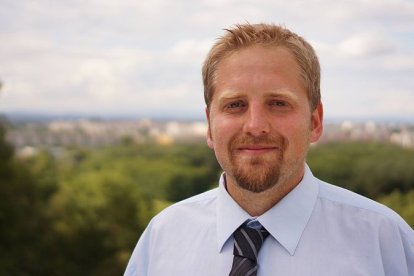
Vit Jedlicka, president of Liberland.
Republic of Molossia
Unlike most micronations, Molossia was not created for any ideological reason nor did it have any conflict with the authorities. It is just the dream of Kevin Baugh, who considers himself a "benevolent dictator" and claims that only his family can be citizens of the country, which is located in Nevada.
This micronation is made up of two properties, which feature a large outdoor space where all the state offices function, which are attended by dummies.
Molossia's website allows one to appreciate, among other things, its local fauna, its main square and its national sport: Molossian broomball.
The "dictator" himself offers guided tours of Molossia, where he even takes it upon himself to affix the national stamp in the passports of tourists traveling there.
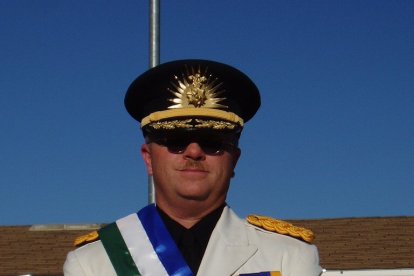
Kevin Baugh, the "dictator" of Molossia.
Republic of Rose Island
Rose Island is an artificial platform built in 1968 in the Adriatic Sea off the coast of Italy, a visionary project of engineer Giorgio Rosa. Its creator dreamed of an independent micronation based on ideals of freedom and self-management. Although it was barely 4,300 square feet, it had a restaurant, a bar and a post office, which attracted tourists and the curious. The island even declared its independence, issuing stamps of its own, which put the island on the Italian government's radar.
Italian authorities, concerned about the possible threat to their sovereignty, saw the Republic of Rose Island as a political challenge. After several months of diplomatic tension, the Italian government sent forces to occupy and subsequently demolish the platform in 1969, ending the brief existence of this peculiar experiment. However, its story left a legacy as a symbol of resistance and the boundaries between individual and state power.
Decades later, this incredible story was brought to the screen in Netflix's hit movie "Rose Island" (2020).
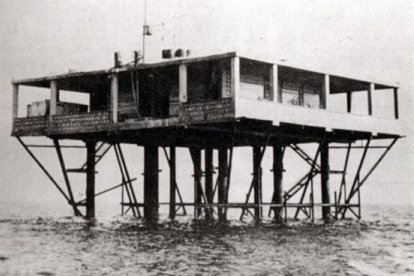
Republic of Rose Island
Freetown Christiania
Christiania is a self-proclaimed independent country with a hippie spirit that is located on an abandoned 1970s military base in Copenhagen, Denmark.
In addition to its flag and anthem, Christiania has its own rules, which, among other things, exclude private property and promote community self-management.
There are just over 1,000 inhabitants who are seeking to move away from the notion of traditional state for one with a freer spirit, so they consider themselves independent of the Scandinavian country. In Christiania, soft drugs are almost common currency.
However, in recent years, criminal groups have taken control of this part of the city, increasing violence in the community, especially on Pusher Street, the BBC reported.
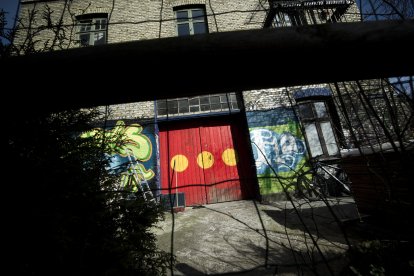
The Christiania flag painted on the door of a structure in the micronation.
Republic of Kugelmugel
This micronation emerged in the 1970s after the late Austrian artist Edwin Lipburger erected a spherical-shaped house, which is illegal in Vienna, Austria. For this reason, he decided to declare independence.
The artist had a long legal confrontation with authorities, who even put him in prison for a short period of time because he refused to pay taxes.
Later, the Republic of Kugelmugel was placed in Prater Park in Vienna. Today, it is a tourist attraction that attracts visitors from many countries.
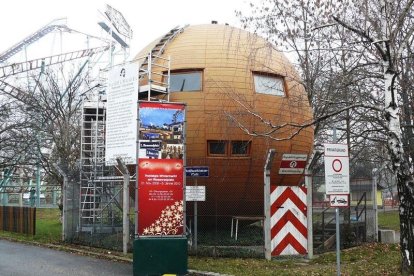
Kugelmugel Republic
Principality of Hutt River
The Principality of Hutt River, located in Western Australia, was founded in 1970 by Leonard Casley as a response to a dispute with the Australian government over restrictions on wheat production. Casley declared his property, a sprawling 29 square mile farm, as an independent state, self-proclaiming himself "Prince Leonard." Based on legal technicalities and loopholes, the principality presented itself as a sovereign entity, allowing its inhabitants to avoid paying taxes to the Australian government for decades.
Although never officially recognized by any country, Hutt River operated as a functional micronation. It issued its own currency, passports and postage stamps, and became a tourist destination for curious travelers from around the world. Relative independence was maintained by the lack of direct intervention from the Australian government, which viewed the territory as more of an eccentricity than a threat. However, in its later years, the principality faced increased legal and fiscal pressures.
Following the death of Prince Leonard in 2019, the Casley family decided to dissolve the Principality of Hutt River in 2020. The heirs to the project faced difficulties in maintaining operations and managing accumulated debts, especially with the Australian Taxation Office, which was claiming million-dollar sums. The end of the principality marked the close of a unique era in Australian history, leaving a legacy of ingenuity, resilience and the eternal debate over the limits of individual sovereignty.
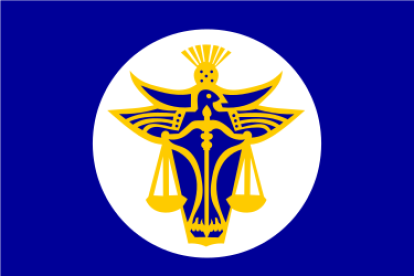
Flag of the Principality of Hutt River
Royal Republic of Ladonia
This micronation is located in the Swedish nature reserve Kullaberg, in southern Sweden. Ladonia arose in the 1990s as a result of a conflict between the Scandinavian country's authorities and the late artist Lars Vilks, due to two large structures that he had erected there and that the Swedish government considered illegal.
Because the local authorities had announced their intention to demolish the structures, Vilks decided to declare Ladonian independence.
This strange micronation has about 20,000 citizens and its own flag. Its anthem is the shortest in the world, consisting of throwing a stone into the water.
Lars Vilks, who died in 2021, is also known for having drawn Muhammad, which is why he suffered two assassination attempts by Islamic extremists.
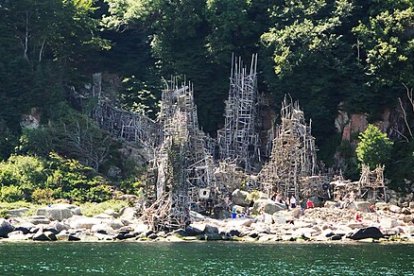
Royal Republic of Ladonia
RECOMMENDATION
